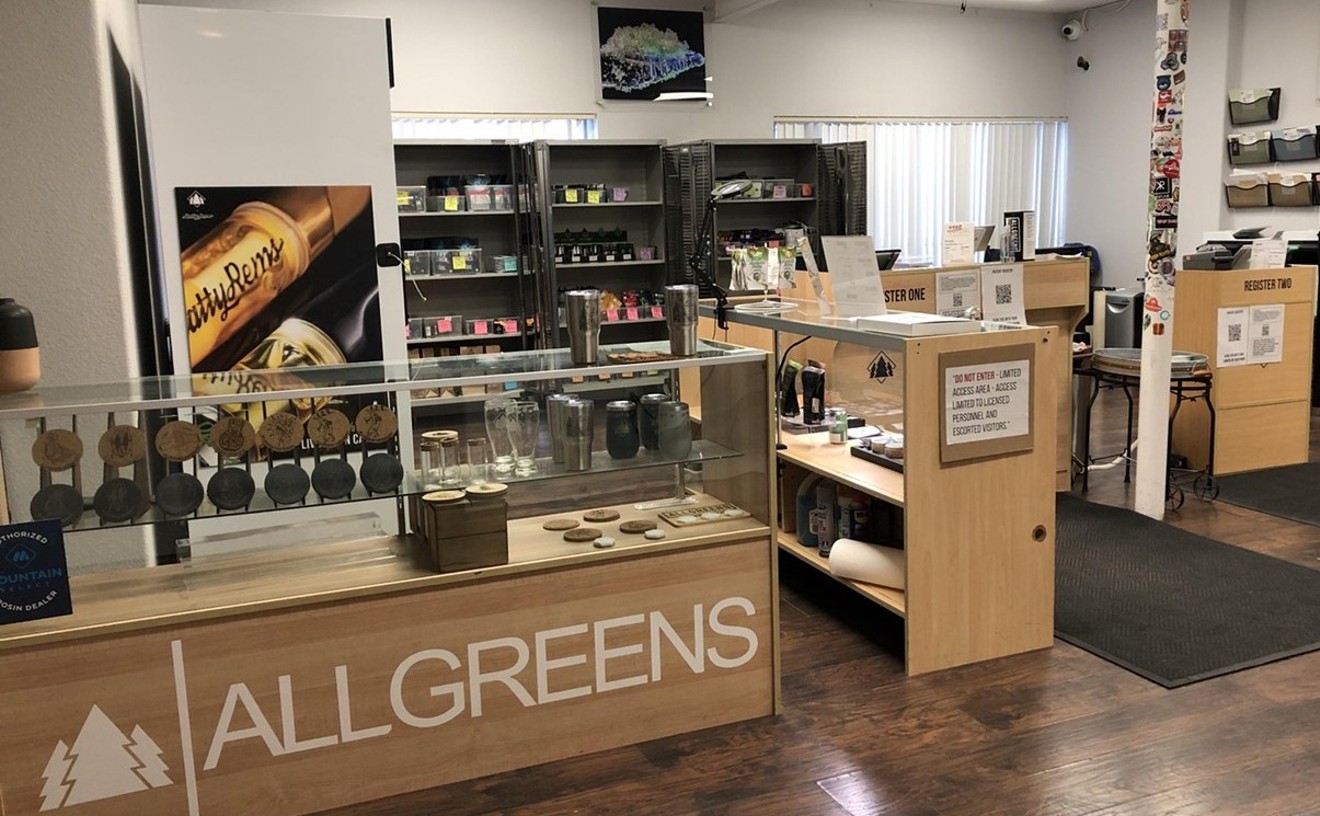Dr. Sue Sisley holds the rare distinction of being licensed by the Drug Enforcement Administration to study marijuana, so why is she suing the DEA over its marijuana research policies?
In June, Sisley's Scottsdale Research Institute filed suit in the U.S. Court of Appeals for the District of Columbia, asking that the Attorney General and the DEA be ordered to process its application to grow marijuana for clinical research. In the filing, Sisley claims that the DEA has created a monopoly around federally licensed marijuana research. By requiring that researchers only use marijuana from the University of Mississippi for their studies, she says, federally licensed marijuana researchers are limited to low-grade cannabis without proper variety.
Sisley, who's received funding for her research from Colorado and recently completed a federal study about marijuana's effects on military veterans with post-traumatic stress disorder under the Food and Drug Administration, has complained about the quality of Ole Miss's cannabis in the past. Now she's concerned that her study's results may have been compromised by poor cannabis quality, explaining that the marijuana is far less potent than strains available in dispensaries or on the black market; the limited strains from Mississippi are also mixed together, which affects the quality of cannabis and correlations between strain and effect, she says.
“Most scientists end up with this mishmash of different strains (including stem sticks, leaves, etc.) — all of it seems to get thrown into a grinder in an overzealous effort to standardize the study drug batches for clinical trials," Sisley says in a statement about her suit. "I’m arguing that by doing that, they’re overprocessing the plant and decimating the natural efficacy contained in the flowering tops. Further, in controlled trials, we issue patients the study drug by weight."
Mississippi has been the only legal supplier of cannabis for federally approved research since the ’60s. In 2016, the DEA announced that it would increase the number of permitted cannabis growers, but no additional permits have been issued since then, despite more than thirty applications. Sisley says she's done waiting.
“Maintaining only one federally legal drug supply for any clinical trials in the U.S. has been a huge impediment to research, because it’s not allowing scientists access to necessary options," she explains. "We can’t just study from one supplier who seems to be limited from purchasing new genetics. And when there’s a monopoly for this many decades, it tends to breed apathy. There’s no real drive to respond to the public, to be responsive to the demands of scientists, no real need to innovate in the direction of what patients want.”
Asked about federal cannabis cultivation permitting, a DEA spokesperson says that the agency is "still working through the process and those applications remain under review." The agency does not comment on pending litigation.
But Sisley is likely to have much more to say about the current medical cannabis monopoly when she delivers one of the keynote addresses at Microscopes & Machines, a hemp and cannabis science conference, in Los Angeles on July 27.
[
{
"name": "Air - MediumRectangle - Inline Content - Mobile Display Size",
"component": "12017618",
"insertPoint": "2",
"requiredCountToDisplay": "2"
},{
"name": "Editor Picks",
"component": "17242653",
"insertPoint": "4",
"requiredCountToDisplay": "1"
},{
"name": "Inline Links",
"component": "18838239",
"insertPoint": "8th",
"startingPoint": 8,
"requiredCountToDisplay": "7",
"maxInsertions": 25
},{
"name": "Air - MediumRectangle - Combo - Inline Content",
"component": "17261320",
"insertPoint": "8th",
"startingPoint": 8,
"requiredCountToDisplay": "7",
"maxInsertions": 25
},{
"name": "Inline Links",
"component": "18838239",
"insertPoint": "8th",
"startingPoint": 12,
"requiredCountToDisplay": "11",
"maxInsertions": 25
},{
"name": "Air - Leaderboard Tower - Combo - Inline Content",
"component": "17261321",
"insertPoint": "8th",
"startingPoint": 12,
"requiredCountToDisplay": "11",
"maxInsertions": 25
}
]











